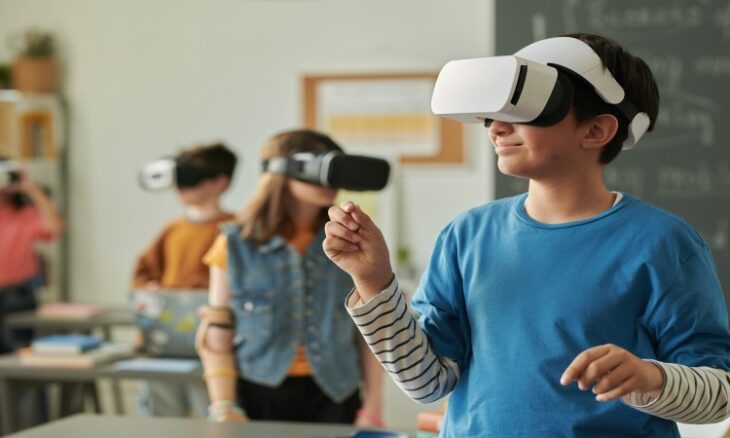BNU Secures VR Technology Grant for Student Training
Buckinghamshire New University has secured funding through the Bodyswaps & Meta XR Education Grant, allowing the institution to introduce virtual reality and artificial intelligence technologies into student professional development programmes. The university will deploy these advanced learning tools across its MSc Nursing and Master of Public Health courses.
The grant enables BNU to incorporate the Bodyswaps VR platform into its curriculum, providing students with simulation-based learning experiences that replicate real-world professional scenarios. This immersive technology creates realistic environments where students can practice essential workplace skills without the pressures associated with actual clinical or public health settings.
The Bodyswaps platform operates through scenario-based virtual environments that focus specifically on developing communication abilities and professional competencies. The system includes a distinctive body-swapping feature that permits students to observe their own performance from alternative perspectives, creating opportunities for enhanced empathy development, critical reflection, and improved self-awareness during training exercises.
University officials have structured the VR training around three comprehensive modules that address different aspects of professional development. The SBAR module concentrates on Situation, Background, Assessment, and Recommendation protocols, helping students develop clearer, more confident clinical communication techniques that meet industry standards.
The Values to Guide Actions module presents students with ethically challenging scenarios that require them to apply fundamental NHS principles and public health values in their decision-making processes. This component ensures graduates understand the moral frameworks that underpin effective healthcare and public service delivery.
The Patient-Centred Approach module provides extensive practice opportunities for developing empathy, active listening capabilities, and appropriate body language when interacting with virtual patients. Students can rehearse these crucial interpersonal skills repeatedly until they achieve the proficiency levels required for professional practice.
BNU has implemented this pilot programme at its High Wycombe campus, utilising the university’s established Digital Campus infrastructure to support the technology integration. The institution has invested in comprehensive support systems, including VR headset provision, specialised digital learning guidance, and dedicated technical assistance to ensure seamless curriculum incorporation.
The university has provided students with all necessary equipment and ongoing technical support throughout the pilot phase, removing potential barriers to technology adoption and ensuring consistent learning experiences across all programme participants.
Early feedback from participating students indicates overwhelmingly positive responses to the VR training initiative. Many participants have reported significant improvements in their communication confidence levels and have developed a deeper understanding of the professional values that guide healthcare and public health practice.
Students have particularly appreciated the opportunity to practice challenging scenarios multiple times without consequences, allowing them to build competence gradually and develop professional judgment in a supportive learning environment.
BNU representatives have emphasised that this project demonstrates the university’s ongoing commitment to integrating technology-enhanced learning methodologies throughout its academic offerings. The institution aims to prepare graduates more effectively for the continuously evolving demands they will encounter in contemporary healthcare environments and public service roles.
The successful implementation of this VR training programme positions BNU as a forward-thinking institution that embraces innovative educational technologies to enhance student outcomes and professional readiness.










